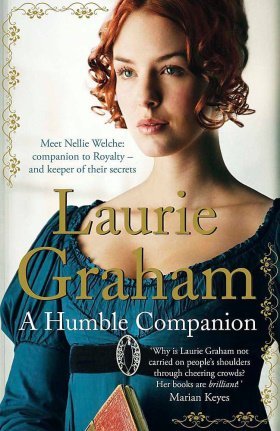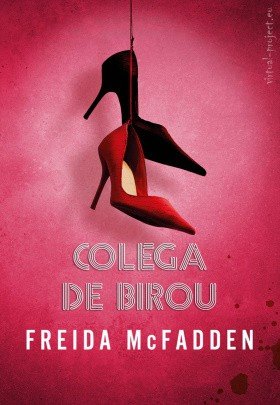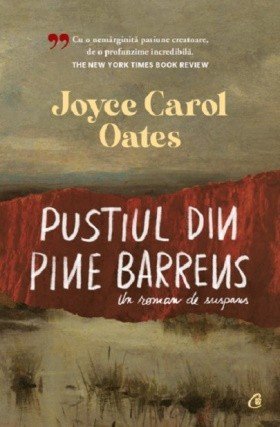He had been woken at five. No, he had been woken at four. Well, to tell the truth, he hadn’t been woken at all for how could a man sleep when he knows what the dawn will bring? He had seen his queen one last time, but then again, he had not, and the Queen for her part had rent her garments, fallen in a dead faint, or conducted herself with quiet dignity, depending on who you listened to. On certain points there was unanimity. Paris had closed its gates before first light and ordered all windows shuttered, and when the long, slow carriage ride was over and the King arrived at the scaffold and had been shorn and bound, a loud drum roll was ordered so that his final words shouldn’t be heard. At first it seemed a great novelty for a king to be treated with such insolence. Eventually I recognized it for what it was. Sheer malice, to the very end.
By morning the mood around Soho Square had changed.
What had shocked people at first hearing became less chilling and more thrilling. What a thing it would have been, people said, to have seen it, to have dipped a pocket handkerchief in the King’s blood and taken it home for a memento.
January 22nd 1793
Twyvil says King Louis’s execution doesn’t sound to her like much of a spectacle if honest people weren’t allowed to watch it from their own windows. Morphew says it’s a mark of how well things are done now in France, that a king can be despatched with no more fuss than the sticking of a pig and the ordinary business of the day resumed before his body had even been laid in lime. Susan takes it all in. They make me sick to my heart with their talk. I should write to Sofy, but what can I say? They must all be quite terrified.
I needn’t have worried about Sofy. She had decided to dispel any dreadful thoughts that might have kept her awake at night by treating King Louis’s execution as a very distant affair, the outcome of a quarrel between people too foreign for us to judge. ‘French ways are not at all our ways,’ she wrote, ‘but I think he cannot have been a good king and father to his people as our Majesty is.’
That was all she had to say on the subject. She was far more interested in the war now declared between France and England. To Sofy it held out the promise of battlefield glory for her beloved brothers. She certainly didn’t seem to fear for their lives:
Dolly is promoted colonel in the Hanoverian Foot Guards and Ernie is in the Light Dragoons. Gusta wishes we had all been born boys then none of us would be left out of the campaigning, except the Prince of Wales of course. His health must be preserved AT ALL COSTS. Fred York is already on his way to Flanders. His wife encouraged him to go as quickly as possible.
It was whispered that the Duchess of York found her husband dull-witted, that she preferred the company of her dogs, and whenever possible remained in her apartments until she heard him leave for town. She really had no one to blame but herself. She’d been acquainted with York for several months before they were married and any person with a brain in their head needed only an hour in his company to know he was a perfect blend of tedium and foolishness.
War can be a bracing thing as long as it doesn’t come too close to your own door. London was suddenly full of men parading about in their red coats and shakos, admiring themselves in shop windows. Indeed, I think it was the notion of wearing so splendid a hat that made Morphew threaten to join the Westminster Militia. He, who had so recently thought it an excellent idea for the French to kill each other, had changed his tune when they threatened to kill Englishmen. Twyvil told him they’d never take a man of fifty. Jack Buzzard, on the other hand, was just the age to enlist and he was worried for his position at Gunter’s and any setback to his plans to go into business on his own account. Papi said I shouldn’t fret, that there were always ways to ensure a man was spared from the levy, but of course it wasn’t Jack I was concerned for.
My thoughts were all for Tom Garth. I guessed that any cavalry major would soon be sent to the battle front and I decided to prepare myself for the worst. Instead of a secret lover I imagined myself a secret war widow. That way, if ever I heard Garth had been killed practice would have made me strong.
I see from my journal that even Mother was roused to domestic war effort:
March 15th 1793
Twyvil has orders to buy only prime roasting meats so that there will be gravy beef enough for our soldiers. Mother also resolved to give our skim-milk to the poor French refugees who are lodged in Meard Street but Papi says better to sell it to them at a fair price because charity weakens the character. I’m sure I shall never see TG again.
I was supposed to join Sofy at Windsor after Easter but then I received word that she had chicken pox and I had better delay my departure until she went to Kew to recuperate. Jack was pleased. He’d paid to be excused the Army lists, and war or no war he’d begun his search for premises. He came to Sunday dinner at Soho Square every week to tell us what progress he’d made. Finding the right place for his shop was no easy matter. The address had to be good but the lease affordable, there had to be accommodations above for us to live in, and the place of business had to be of a particular conformation. He needed store rooms and cool rooms, a good-sized window to display his confections, and a private office that could be made comfortable for ladies to sit and peruse the catalogue.
He said, ‘I’m not setting out to ape Gunter’s—nobs lounging about all day for the price of a jelly—I’m going to be catering to households. High-quality confectionery, bespoke or ready-made, for delivery.’
I said, ‘I wonder if there’ll be enough demand for sweetmeats, now we’re at war? Papi says the Prince thinks of closing up Carlton House.’
Since the French King had lost his head there had been no shortage of advice for the Prince of Wales. Some said displays of pomp and splendour were more important than ever, to reassure people that whatever abominations the French stooped to, there would always be an England, with processions and levees and a good King firmly on his throne. But louder voices said the Prince would do well to settle his debts and go quietly into the country to shoot birds until such time as he was required to fulfil his destiny.
Jack said, ‘The Prince of Wales! I won’t be looking to HIM for custom. I’d as soon build a house on sand. If he won’t pay Coker for silver dishes he looks at every time he sits down to dine, what hope is there he’ll pay for sugar plums, eaten and forgotten? No, Nellie, we’ll do a steady kind of trade, with people who settle their accounts. There’ll always be ball suppers.’
One day he showed me a sketch he’d done of how the shop sign would read.
At the Sign of the Green Pineapple
sole proprietor John Buzzard
Purveyor of wet and dry sweetmeats, ices, cordials and ornamental table furnishings.
He said I might have my name on it too, once I’d learned the trade. I couldn’t think what he meant.
He said, ‘There’s a good deal to know, Nellie. The sugar work alone takes years.’
I said I had no intention of being a confectioner. I was going to write books. Mother laughed nervously, Papi said ‘Pfft’, and Jack said books didn’t fill bellies but no matter because I was young and would soon get over that silly fancy. I was in a fury:
June 17th 1793
Sometimes I don’t mind Jack Buzzard but today he was so condescending I quite hated him. He said there’ll be no time for scribbling when we have a shop to run and children to raise. He said we’ll have two boys and then a girl, as though you order babies like cream ices. Well I may be young but I don’t see that writing stories is any more fanciful than making castles out of pastry. I wish Sofy would send for me.
Sofy didn’t but Mrs Chevely did. She was at Kew supervising Sofy’s convalescence. She said Sofy was now clear of the chicken pox, though still weak and troubled with spasms of the throat, and I might attend her at my earliest convenience. Papi said it sounded like the family malady: swelling of the glands. He said Sofy should go to Brighton and try the waters.
I said, ‘With Mrs Fitzherbert in town? Papi, you know she’d never be allowed.’
‘Ach!’ he said. ‘But Miss Fitz iss finish! Now he doss not never see her. Only he plays cards viz his friends. Soon he vill make gut marriage viz gut German Princess. You see.’
Jack didn’t want me to go to Kew. He said, ‘How long will you be gone?’
With Royalties you never could say.
He said, ‘Well that’s not right, Nellie. They should say how long. They should make it clear. You’re not a servant.’
I said, ‘No, I’m a friend.’
‘Do you reckon so? Friend to a princess? Can that be?’
‘I don’t know. I never had a friend before Sofy so I’ve no measure for it.’
He went away cross but he came back before I left for Kew and brought a bottle of walnut cordial for Sofy, highly recommended for debilitations of the throat.
Sofy’s condition was much worse than Mrs Chevely had described it. She was very weak and could swallow nothing but clear soup. But the worst of it was the spasms that gripped her, sometimes twenty times in a day. She might be sitting comfortably at her work or listening to me read and suddenly be thrown about by terrible convulsions, gasping for air, sometimes to the point of fainting away. Then she’d revive and seem to have little recollection of the crisis. Mrs Chevely slept by her side every night and the physician came every day, scratched his head and went away again.
Gradually though, in the third week of my visit, she began to regain her strength. The spasms lessened, and there came an afternoon when she seemed so improved and was sleeping so peacefully beneath the horse chestnut that we crept away, Minny, Amelia and myself, to net butterflies. We hadn’t been gone more than five minutes when we heard cries of alarm and ran back to find Sofy in the throes of another fit and Mrs Che fanning her with one hand and waving a bottle of hartshorn salts under her nose with the other. When she came to her senses she was in the very devil of a mood.

























